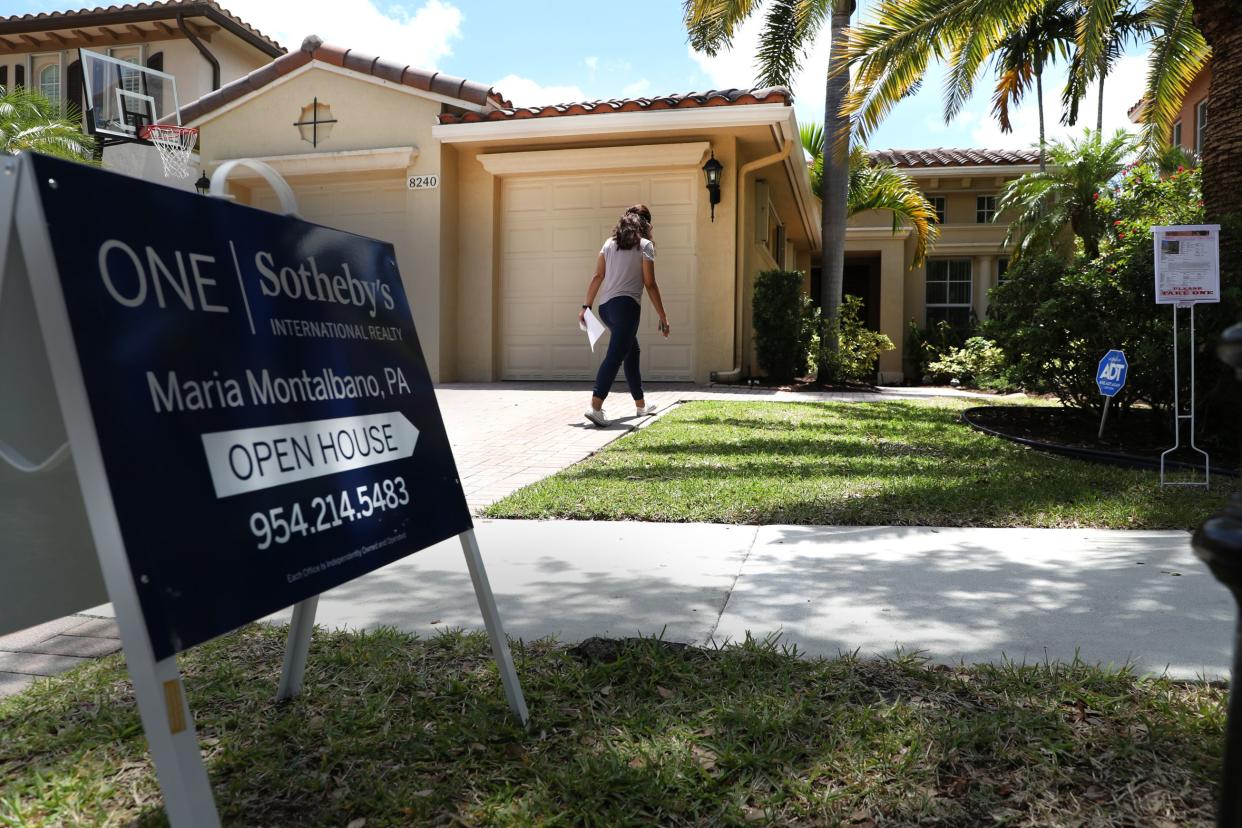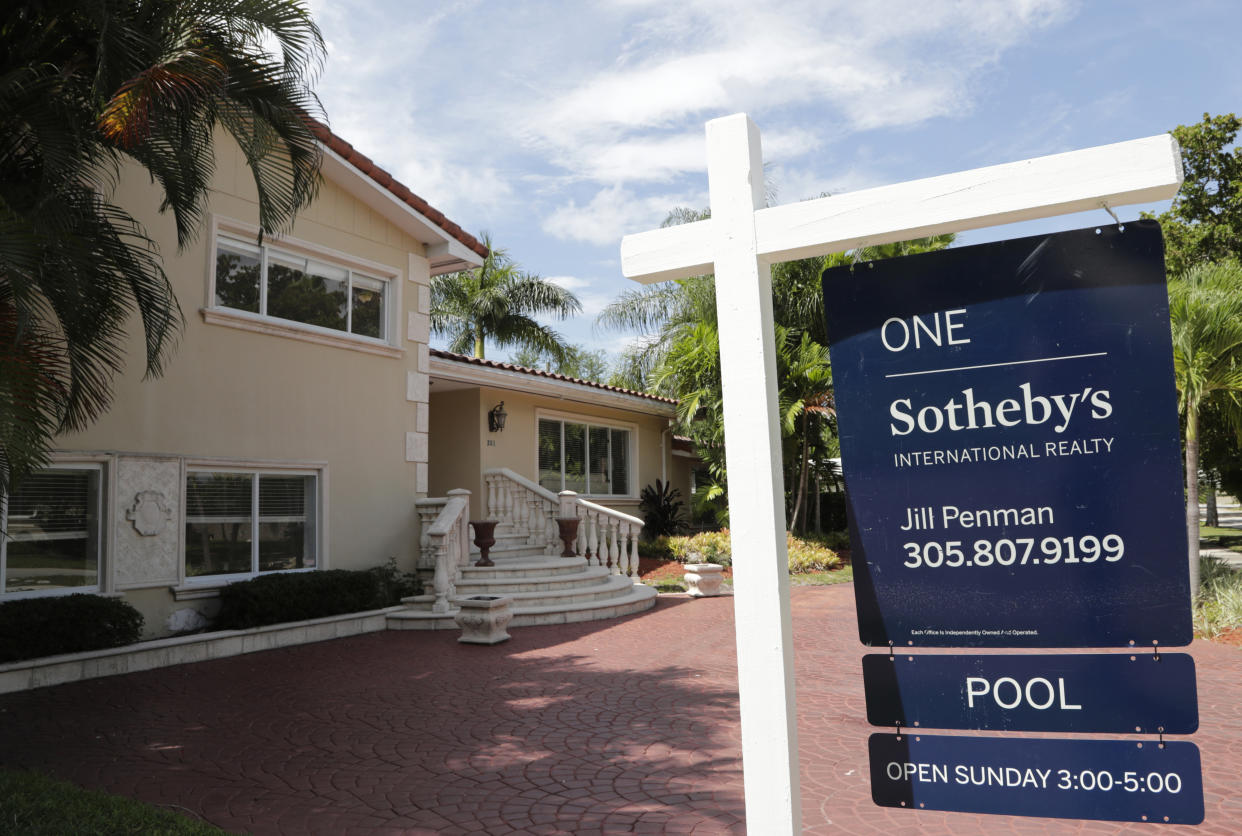Foreign buyers purchased the fewest number of homes in 14 years, study finds
International homebuyers snagged fewer real estate deals in the last year, a new study found, as they faced the same headwinds as buyers stateside.
Foreign buyers bought 84,600 properties from April 2022 to March 2023, according to the National Association of Realtors (NAR). That’s the lowest level since 2009 and down 14.2% from a year earlier. Overall, these buyers invested $53.3 billion in real estate, down 9.6% compared with the previous year.
The decline in purchase activity underscores how challenging the US housing market has become as buyers of all stripes contend with a shortage of homes for sale and higher prices. Some foreign buyers may also face more hurdles in Florida now that a new law has gone into place.
“Sharply lower housing inventory in the US and higher borrowing costs across the world have dented international buyers for two straight years,” said NAR chief economist Lawrence Yun. “However, recovering international travel following the end of the pandemic will bring more foreign transactions in coming months and years.”
Higher home prices thwart purchasing power
International clients shelled out about $12,200 more on a typical home than domestic buyers, analysts found, because they often targeted popular coastal areas and bought in all cash.
The average sales price ($639,900) and the median sales ($396,400) price for foreign buyers were both the highest recorded by NAR, up 7% and 8.3%, respectively, from a year earlier.
Overall, 15% of international homebuyers purchased homes worth more than $1 million from April 2022 to March 2023, the study found.
NAR found that 42% of foreign buyers bought in cash, compared with 26% of the overall market. Non-resident foreign buyers accounted for 52% of all cash purchases, versus 32% of resident foreign buyers.
Nearly half of these buyers bought the property as a vacation home, rental, or both, compared with 16% of all existing homebuyers.
Asian and Latin foreign buyers buy up real estate

Asian buyers accounted for 38% of all international buyers, the largest group. Latin American buyers followed, making up 31% of the international buyer pool in the US, according to NAR.
The majority of buyers also came from China, making up at least 13% of international buyers and investing $13.6 billion in purchases. They largely targeted the priciest areas in the US, like California and New York. As a result, Chinese buyers had the highest average purchase price at $1.23 million and the highest median purchase price of $723,200.
By contrast, buyers from Mexico tended to purchase the least-expensive properties in the US, with Texas as their preferred destination. Mexicans made up 11% of all foreign buyers, investing about $4.2 billion.
While Canadians were the third-largest population of foreign buyers, they came in second in amount spent on a typical home. Their purchases averaged $572,900, NAR found. Canadians were more likely to purchase in vacation destinations such as Florida and Arizona. Overall, they made up 10% of all foreign buyers and invested $6.6 billion in real estate.
India and Colombia rounded out the top five international countries for foreign buyers, making up 7% and 3%, respectively, of the international buying pool.
“Home purchases from Chinese buyers increased after China relaxed the world’s strictest pandemic lockdown policy, while buyers from India were helped by the country’s strong GDP growth,” Yun said. “A stronger Mexican peso against the US dollar likely contributed to the rise in sales from Mexican buyers.”
Headwinds persist
Foreign buyers also ran into the inventory challenges that are facing most homebuyers. Many homeowners are reluctant to sell their homes and lose their current mortgage rate that's far lower than the prevailing one. That's resulted in historically low inventory of resale properties on the market.
While new home construction has filled in some of the shortfall, it hasn't been enough. That's left all buyers, including foreign buyers, vying for what's left.
Additionally, purchasing in Florida just got more difficult for certain foreign nationals.
Florida Gov. Ron DeSantis enacted a new law that bars citizens from Cuba, Venezuela, Iran, Russia, China, North Korea, and Syria from purchasing agricultural land in the state of Florida as well as real estate within 20 miles of airports, US military installations, or other "critical” infrastructure facilities. Chinese citizens who buy land in restricted areas would face the harshest penalties compared with other groups.
That's a blow to investment in the state, which remained the most popular destination for international buyers for the 15th consecutive year. Most of the interest came from Latin American and Canadian buyers, NAR analysts said.

The study found that 23% of all international purchases were in the Sunshine State, followed by California and Texas tied for second at 12%, and North Carolina, Arizona, and Illinois all at 4%.
“Florida, Texas, and Arizona continue to attract foreign buyers despite the hot weather conditions during the summer and the significant spike in home prices that began a few years ago,” Yun said.
Civil rights advocates contend the new law, which went into effect July 1, 2023, violates the Constitution and Fair Housing Act, which protects homebuyers from discrimination based on race or national origin.
According to Luis Padilla, CEO of Oceanside Realty & Investment Inc./ Padilla Team in Florida, the law still has too many unknowns. It’s also currently facing a lawsuit.
“I think it’s a little bit beyond the real estate practitioner's pay grade to really be playing national security agents," Padilla previously told Yahoo Finance. "As a realtor, I think it’s a law that hurts and borders on redlining citizens just because of their ethnicity or citizenship. If I have to be on one side, I’m not for it."
Gabriella Cruz-Martinez is a personal finance reporter at Yahoo Finance. Follow her on Twitter @__gabriellacruz.
Read the latest financial and business news from Yahoo Finance
